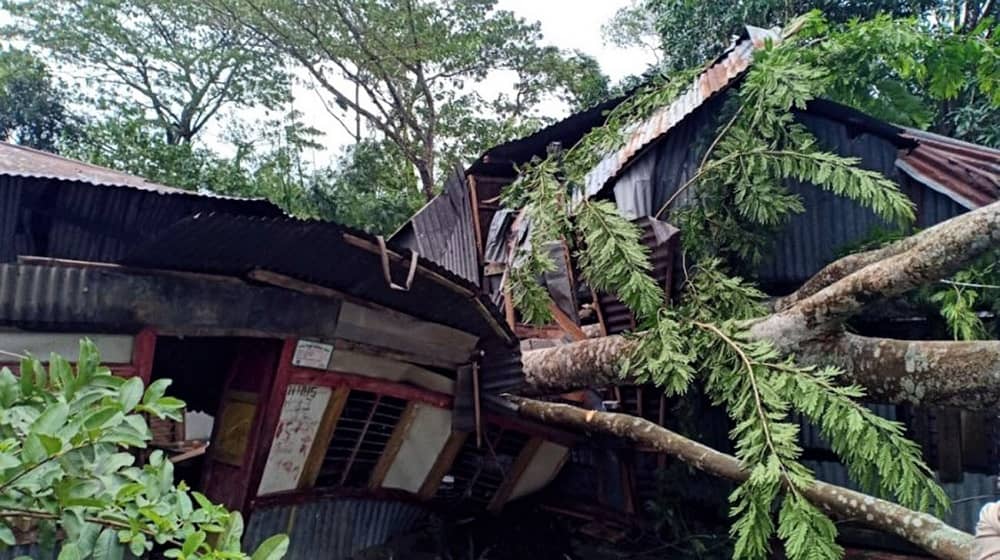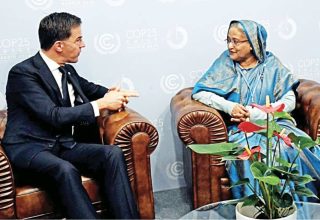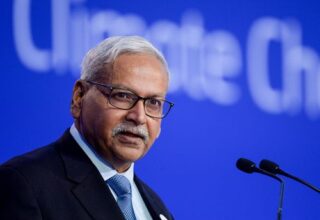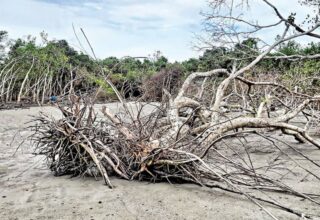
The 15th annual global microinsurance conference was held last week in Bangladesh for the first time with the theme of “Coping with climate risk”. It was inaugurated by the prime minister who felt that the insurance industry could play a key role in not only managing recovery from natural disasters, but also in tackling climate change in the future. The conference brought over a hundred international participants from around the world from the insurance and reinsurance sectors as well as disaster risk managers.
The insurance industry globally consists of many hundreds if not thousands of insurance companies who provide insurance to individuals (e.g. life insurance, health insurance, etc.), or households (e.g. fire and flood insurance, etc), or companies (e.g. fire, floods or other damages) and to governments as well. All these insurance companies then reinsure their policies with a relatively small number of very big global reinsurance companies. The business model for the insurance company is based on very sophisticated mathematical or actuarial models that give them probabilities of pay-outs against the premium they charge their customers. They are able to take on the risk on behalf of their clients by spreading the risk across the globe. Thus for example, if there are major floods requiring pay-outs in one part of the world, then they will still collect premiums from other parts of the world where there are no floods.
One of the predicted consequences of human induced climate change that scientists have been warning about for several decades is that major fires, floods and cyclones will become more frequent around the world and will thus put the reinsurance industry in great risk. This is one of the reasons why the global reinsurance companies have been at the forefront amongst the business community to accept the reality of human induced climate change.
One innovation in the insurance industry that has been developed with climate change in view is called Index Based Insurance (IBI) or parametric insurance. This is an innovative insurance scheme with a number of pilot schemes in the Caribbean, Africa and Asia, providing some initial interesting results. The difference between IBI and traditional insurance lies in the fact that whereas traditional insurance pays the client after the damage is done and assessed by the insurer, with IBI, the trigger for making payments is a previously agreed threshold of climate event, such as a cyclone reaching a certain speed or a flood above a certain level at a predetermined point. In such a case, once the threshold is reached, everyone who is insured gets paid immediately regardless of how much damage each individual incurs.
These IBI type pilot schemes are also being tested in Bangladesh and have had some interesting early results.
The real overlap between dealing with climate change and the role of insurance comes in tackling the issue of loss and damage, which is a very politically sensitive topic in the international negotiations under the United Nations Framework Convention on Climate Change (UNFCCC), where the issue is linked to liability and compensation. At the 19th Conference of Parties (COP19) of the UNFCCC held in Warsaw, Poland in 2013, countries agreed to set up the Warsaw International Mechanism (WIM) for Loss and Damage with a five-year workplan to look at the issue in more detail, including the possible role of innovative finance for loss and damage. The WIM had an Executive Committee who carried out the workplan and will be reporting the results at the upcoming COP25 to be held in Madrid, Spain next month in December.
At the upcoming COP25, one of the key agenda items will be the review of the WIM and its next steps. While the Executive Committee of the WIM has made good progress on the other items in their workplan, the progress on exploring innovative sources of funding has been confined to insurance by the developed countries.
While insurance and reinsurance companies can certainly play a role as described above and their climate risk modelling capacity can be of great use, the most vulnerable communities and countries simply cannot afford to pay the high cost of premiums that would be required in a world affected by climate change. In fact, many insurance companies are already withdrawing from fire and flood insurance in developed countries due to the enhanced frequency and intensity of such events in the last year or two.
Hence, Bangladesh along with the Least Developed Countries group as well as other vulnerable countries will be pushing very hard in COP25 for the WIM to be given a much stronger mandate to explore financing loss and damage beyond insurance. It will be a tough fight, but one we must not back down from.
Originally this article was published on November 13, 2019 at Daily Star. The author Dr. Saleemul Huq is the director of the International Centre for Climate Change and Development (ICCCAD) at the Independent University, Bangladesh (IUB).
Email: saleemul.huq@icccad.net






